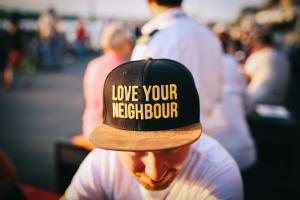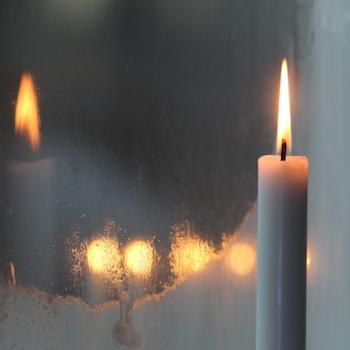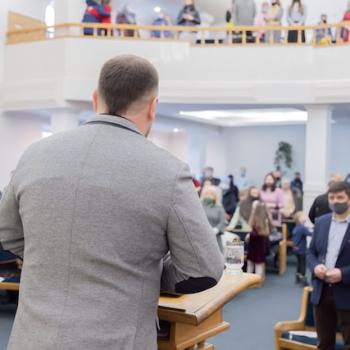This is a companion post to last week’s reflections on faith as more of a practice than a set of beliefs. So, feel free to go there first if you haven’t had a chance yet.
I want to add something to those reflections. I want to say that there are times when clarity of belief is important. So important.
Exclusion and Inclusion
When I wrote last week about belief statements that bother me, I was thinking primarily of statements I’d seen in conservative churches. They’re often full of highly specific doctrines that not all Christians agree about now, let alone over the course of two thousand years and all the ways the Christian tradition has changed over time.
I was also addressing conservative churches’ tendency not to settle for simply articulating their beliefs but to go one step further—requiring people who want to be a part of their church to assent to these beliefs. Under threat of exclusion from the community.
And that’s the gist of it: this idea of exclusion and inclusion in community.

Maybe my issue isn’t exactly doctrinal statements themselves so much as the sets of beliefs that alienate and exclude. I wish churches did not hold these alienating and excluding beliefs. I wish everyone were welcome, really welcome, exactly as they are. As we are.
Belief Statements and Queer Experiences
A friend reached out after reading last week’s post. She had this to say about her experience:
As a queer person who has functionally left “the church,” belief statements are important for me in order to know whether I do (or do not) belong. For example, my wife grew up Catholic and wanted to attend Christmas mass last year. We wanted to find a church that would welcome us, though temporarily, into their community. To figure out where to go I did some googling then checked belief statements.
Belief statements are important to my friend because she needs to know whether she will belong in a space, whether a space is safe for her. That makes sense to me.
I wish all churches held beliefs that made them safe places for queer folks to worship. But this is not the reality.
Given this, there’s a great need for clarity. Queer people fully deserve to know up front what they’re getting into if they’d like to visit or attend a particular church. They deserve to be able to stay away from communities that will not love them well.
A Resource: Church Clarity
I appreciate the work of Church Clarity here. They describe themselves as a “crowd-sourced database of local congregations”—4,556 congregations, to be exact, as I write this—scored “based on how clearly they communicate their actively enforced policies.”
As Church Clarity states, “Ambiguity enables those with power to operate without accountability and cause real harm. Many people invest years of their lives into a church community, only to later discover the truth about the church’s policies, and end up feeling betrayed, deceived and ‘bait-and-switched.’”
Betrayed. Deceived. Bait-and-switched. Those are some strong words, and some words worth hearing.
Lack of Clarity Harms People
From my years as a young woman at a complementarian church, I can relate to some part of the ambiguity Church Clarity describes. When I started going to that church as a college freshman, it didn’t occur to me to ask questions about gender and leadership. It was probably a couple years before I realized that women were excluded from serving on the church’s elder board.
In this particular case, I didn’t feel like it was exactly a “bait and switch.” No one was trying to hide that information from me. I just didn’t think to ask, and no one thought to tell me.
But there are plenty of similar situations that are much more insidious. Especially because churches have been criticized so much—and rightly so—for their rejection of LGBTQ+ people and relationships, many conservative churches hide exclusive policies behind rhetoric of welcome and acceptance.
This is not fair to LGBTQ+ people, who, as Church Clarity reminds us, end up feeling—and being—deceived and betrayed by the church-y people who said they loved them.
If churches have exclusive practices—like refusing to officiate gay weddings, or prohibiting openly gay people from serving in leadership—they should be clear about those practices.
Love Across Difference
When I suggest reframing faith as more of a set of practices than an intellectual assent to a particular doctrinal statement, what I’m really trying to get at is this:
- Healthy communities intentionally love one another across difference.
- Healthy communities do not center themselves on the sameness of agreement. They do not expect everyone to believe exactly the same things.
- Healthy communities seek the kind of unity that does not require conformity.

I’m trying to get at the idea that faith communities can center themselves not in uniformity but in shared practices of love. In practices of belonging.
Perhaps we can evaluate statements of belief or doctrine, then, by asking whether they serve these goals. Do they help us love one another better? Do they promote a holistically inclusive sense of belonging?
I would love to see churches open their minds and hearts to the ways God’s Spirit brings people together across differences to form a unique kind of community that is sometimes difficult but also amazing. This is the kind of community I want to be a part of.












